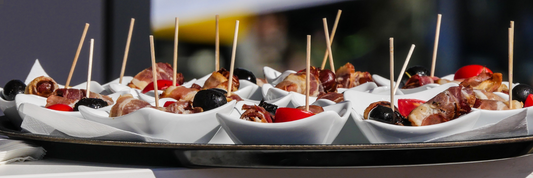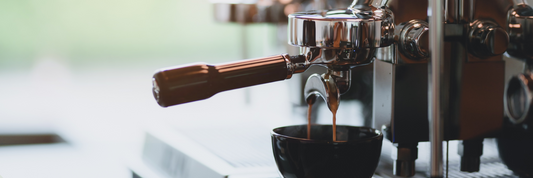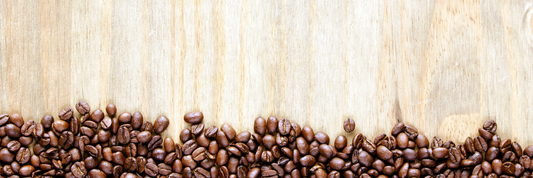Fiber packaging is considered as a sustainable choice that is increasingly popular among environmentally conscious consumers and business. But what make it sustainable? Do they have any concerns to use daily uses or business practices? All about this packaging is explained in following article.
Related: What is Plant Fiber?
Essential of Fiber Packaging
What is Fiber Packaging?
Fiber packaging, also known as fiber-based packaging, is a type of packaging that uses reusable, renewable or biodegradable material.
Fiber packaging can has a wide range of uses, following are some common applications.
Food and Beverage:
- Cartons for liquids like milk, juice, and soup.
- Boxes for cereals, snacks, and frozen food.
- Trays and cups for fruits, vegetables, and prepared meals.
- Egg cartons and produce sleeves.
Consumer Goods:
- Boxes for electronics, toys, and household items.
- Mailers and envelopes for documents and smaller products.
- Cosmetic boxes and product inserts.
- Shoeboxes and clothing tags.
Industrial and Commercial:
- Crates and pallets for shipping larger items.
- Dunnage and protective packaging for fragile goods.
- Insulated containers for temperature-sensitive products.
- Reusable packaging for internal handling and logistics.
Other Applications:
- Gardening and landscaping products like plant pots and seed trays.
- Medical and pharmaceutical packaging for sterile and sensitive items.
- E-commerce packaging for online orders.
- Promotional materials and displays for marketing and branding
What are the materials used in fiber-based packaging?
Fiber-based packaging can be made from different materials, including: recycled materials like paper or cardboard; or natural fibers such as wood pulp, bamboo, bagasse and wheat straw.
Here is the breakdown of each material:
- Paper and cardboard: These familiar materials are often the first to come to mind when thinking of recycled fiber packaging. Newspapers, magazines, and old cardboard boxes can be pulped and turned into new paperboard, reducing waste and resource consumption.
- Wood Pulp: This is the classic material used in traditional paper and paperboard packaging. It comes from trees grown specifically for papermaking, typically in managed forests.
- Sugarcane Fiber: Also known as bagasse, this fibrous residue left after sugar extraction from sugarcane is gaining traction as a sustainable packaging material. It's strong, moldable, and can be composted, making it a great choice for food and beverage packaging.
- Wheat Straw Fiber: Similar to bagasse, wheat straw is a leftover agricultural residue that can be repurposed into sturdy and compostable packaging. It's often used for food trays, cups, and other disposable items.
- Bamboo Fiber: This fast-growing and renewable grass offers a strong and eco-friendly alternative to wood pulp. It's naturally water-resistant and can be used for various packaging applications, from food containers to furniture panels.
What Are Pros and Cons of Fiber Packaging?
What Are Benefits of Fiber Packaging?
Fiber packaging offers different benefits for environments and practical activities:
For the environment:
- Sustainability: Fiber packaging is often made from renewable resources like recycled paper and wood pulp, making it an eco-friendlier option than plastic or metal. This reduces reliance on fossil fuels and minimizes environmental impact.
- Biodegradability and composability: Some types of fiber packaging, like molded pulp and those made from certain agricultural residues, are biodegradable and compostable under the right conditions. This minimizes waste generation and promotes resource recovery.
For practical uses:
- Versatility: Fiber packaging can be molded into various shapes and sizes, making it suitable for a wide range of products from food and beverages to electronics and furniture. This adaptability caters to diverse packaging needs.
- Lightweight: Compared to some other materials like plastic, fiber packaging can be lighter, reducing transportation costs and fuel consumption during shipping. This contributes to a smaller carbon footprint.
- Protective properties: Many types of fiber packaging are strong and durable, offering good protection for the products they contain. This ensures the integrity and quality of the packaged goods.
- Printability: Fiber packaging can be easily printed with logos, graphics, and other information. This allows for effective branding and marketing, as well as clear communication about the product.

What Are Disadvantages of Fiber Packaging?
Besides of the benefits, there are still few disadvantages, including:
- Cost: In some cases, fiber packaging can be more expensive than plastic or metal options, especially for high-performance applications requiring specific strength or moisture resistance. This can be a barrier for some businesses and consumers.
- Moisture sensitivity: Some types of fiber packaging can be damaged by moisture or require additional coatings for water resistance. This limits their suitability for products needing protection from liquids or humid environments.
- Strength: While generally good, fiber packaging may not be as strong as some other materials for heavy-duty applications or products requiring exceptional shock absorption. This can be a concern for certain industries and products.
- Weight, compared to some alternatives: Although lighter than some materials, fiber packaging may still be heavier than certain options like thin plastic films, impacting shipping costs and carbon footprint in some cases.
What Make Fiber Packaging Good for Food and Beverage Business?
As mentioned above, fiber packaging is considered a sustainable choice for business. When it comes to food and beverages, this type of packaging have several advantages that can replace plastic packaging. That includes:
- Variety of options: Fiber packaging comes in different forms, including paperboard boxes, cartons, trays, cups, and molded pulp containers, catering to diverse food and beverage needs.
- Lightweight: Fiber packaging can be lighter than glass or metal alternatives, reducing shipping costs and fuel consumption.
- Microwavability: Some fiber options are microwave-safe, adding convenience for consumers and expanding product usability.
- Grease and moisture resistance: Certain types of fiber can be treated for oil and water resistance, making them suitable for greasy or liquid food items.
- Insulation: Fiber packaging can provide good insulation, maintaining product temperature for hot or cold beverages and food items.
- Cushioning and protection: Some fiber options offer cushioning properties, protecting fragile food items from damage during transport and storage.
- Aesthetics and premium feel: Fiber packaging can have a natural and organic look, aligning with healthy food trends and enhancing brand image
- Regulatory compliance: Some countries and regions, including Canada are implementing policies that restrict or ban certain types of plastic packaging, making fiber a viable alternative for compliance.
With all the advantages, fiber-based packaging worth the consideration for business who is willing to join sustainable movement and looking for the replacement for plastic.
What Are Considerations When Choosing Fiber Packaging for Your Business?
Before shifting to fiber packaging and enjoy their benefits, there are several considerations you should know.
PFAS: PFAS is a man-made chemical, that is applied widely in food packaging. This substance can be used in some fiver coating for to improve grease and water resistance. So, you should Look for PFAS-free options or coatings with safer alternatives. Business can also contact directly to provider to verify the material for safe use.
Cost: Fiber can be more expensive than some plastic options, especially for high-volume or heavy-duty needs. Therefore, before buying fiber packaging, business can:
- Analyze the cost-benefit trade-off: Consider savings on shipping (lightweight) and potentially higher customer appeal of sustainable packaging.
- Explore cost-effective solutions: Look for recycled content options or simpler designs.
Durability: when it comes to durability, here your business should care:
- Strength: Choose the appropriate thickness and type of fiber based on the weight and fragility of your product.
- Moisture resistance: Some fiber options require additional coatings for water resistance, impacting cost and suitability for certain products.
- Stackability and compression: Ensure the packaging can withstand storage and transportation without damage.
Certifications: Look for certifications like FSC (Forest Stewardship Council) or BPI (Biodegradable Products Institute) for assurance of sustainable practices.
Product type: Consider the size, weight, temperature sensitivity, and fragility of your product. Different fiber options offer varying levels of protection and insulation.
Application: Will it be used for primary packaging, secondary packaging, or both? Different forms like boxes, trays, or molded pulp cater to specific uses.
Where to Buy Fiber Packaging in North America?
With the rising of new trends packaging, fiber packaging can be easily to find in many distributors.
As a wholesale eco-friendly packaging provider for North American Market, Kimecopak offer different fiber-based packaging for food, including:
- Paper Boxes
- Bamboo Fiber Bowl
- Sugarcane Clamshell
- Sugarcane Beer rings 4 Packs
- Sugarcane Beer Rings 6 Packs
- Sugarcane Straws size 8mm
- Sugarcane Straws size 12mm
With a wide range of products, Kimecopak offer also customization service with exclusive offers for long-term partners for example fixed price in 6 months, saving 5-7%, free storage and scheduled shipping. Contact us via email halo@kimecopak.ca or Kimecopak Facebook Fanpage for more information.




